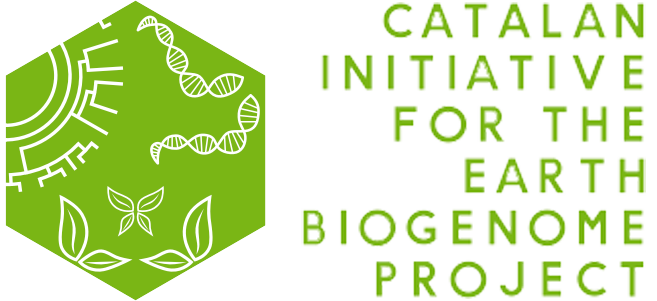Date: July 4-15, 2022
Place: Barcelona (Spain)
Organizers and Sponsors: Universitat de Barcelona, Institut de Recerca de la Biodiversitat, Zoological Systematics and Evolution, Evolutionary Genomics & Bioinformatics, Genomics of Adaptation Network
The course is addressed to graduate and postgraduate researchers that need to learn how to handle HTS data to infer population history, phylogenetic relationships, estimate divergence times or many other applications of tree-based evolutionary methods.
For 17 years, the Universitat de Barcelona has pioneered the training in methodologies for data analysis in evolutionary biology in Spain. Since 2003, the renowned course on ‘DNA phylogenies and genealogies’ organized by Julio Rozas and Marta Riutort has served as a catalyzer to the professional development of more than 400 evolutionary biologists, ranging from master students to group leaders. With the advent of high-throughput sequencing (HTS), the methodologies for the study of evolution have shifted towards a higher analytical complexity strongly linked to the magnitude of big data that needs to be necessarily accommodated in state-of-the-art teaching programs. In 2019, the course underwent a major revamping to adapt its content to the use of high-throughput sequencing data. Moreover, the updated course is now offered in English, to reach and attract additional international participants. The course aims to provide a thorough and rigorous training on the use of phylogenetic and coalescent-based methods to infer evolutionary mechanisms and history at the inter- and intraspecies level using high-throughput sequencing data. The course will cover the main methods of phylogenetic inference, molecular dating, species delimitation, and methodologies based on the coalescence theory to infer demographic history and determine the impact of natural selection and adaptation. Special emphasis will be put to developing hands-on expertise in the use of the state-of-the-art software and explaining through practical cases the current and future applications of phylogenetic methods.
PROGRAMME
I. Introduction
- Conceptual framework (theory).
- A primer on bioinformatics (hands-on).
- High-throughput sequencing data: presenting the different types of data and identifying the most suitable for each research project (seminar).
- Data formats (fastq, nexus, phylip, BAM, SAM, mpileup, VCF, etc.) (hands-on).
- Sanitation: filtering of low quality and low complexity reads, adapter removal and checking for contamination (hands-on).
- Assembly, Mapping, Alignment, Orthology inference (theory and hands-on).
II. Phylogenomics: Species Tree reconstruction.
- Models of DNA and protein evolution (theory).
- Model selection and partitioning scheme (hands-on).
- Methods for phylogenetic inference (I): Parsimony (theory and hands-on).
- Methods for phylogenetic inference (II): Maximum Likelihood (theory and hands-on).
- Methods for phylogenetic inference (III): Bayesian Inference (theory and hands-on).
- Sensitivity analysis: testing phylogeny robustness (theory and hands-on).
III. Population Genomics (I): Neutral variation.
- The coalescent theory. Gene genealogies and sample configuration
- Quantifying neutral genetic variation across the genome. Population genetics parameters and neutrality tests
- Modelling netural variation across the genome. Coalescent samplers
- Variant calling for population genomics analyses: taking genotype uncertainty into account
- Inferring the demographic history of multiple populations from the site frequency spectrum (SFS) and using Moran models.
IV. Neutral genomic variation: Applications.
- Molecular dating. Sources of calibration points. Molecular clocks.
- Species delimitation, discovery and validation methods.
- Biodiversity assessment methods (metabarcoding).
V. Population Genomics (II): Adaptive variation.
- Positive selection and the SFS
- Distribution of fitness effects of new mutations and proportion of adaptive substitutions.
- The McDonald and Kreitman test at its extensions.
- Modelling neutral and adaptive variation across the genome. Forward genetics simulations of complex scenarios.
- Population differentiation and local adaptation. Inferences based on covariance matrices.
- Genome-wide scans of selection. Composite statistics and local differentiation.
More information may be found in the following link.
